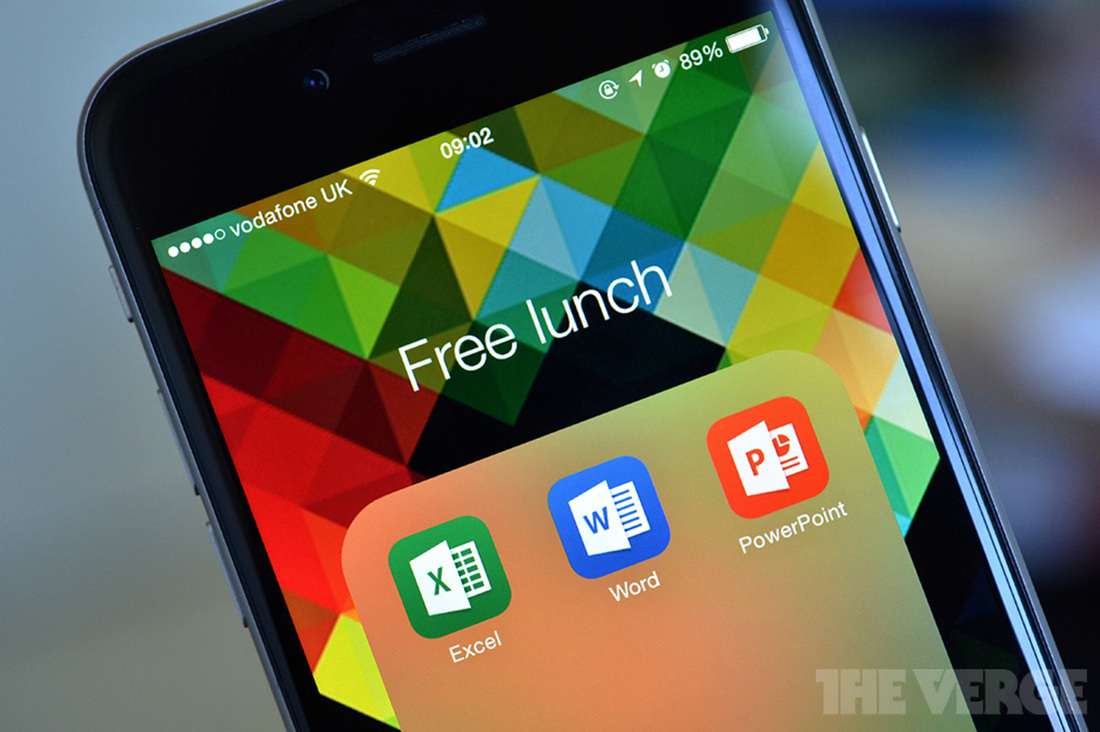While consumers using Office mobile will be able to access the apps for free, Microsoft isn't extending this free functionality to businesses. An Office 365 subscription will be required to edit documents that are stored on OneDrive for Business or Dropbox for business, a clear sign of how Microsoft will continue to generate money from the thousands of businesses that rely on its productivity suite and cloud platform. "There’s still premium value that we’ll add on top of that," says Atalla. "There will still be subscription value, most clearly and easily identifiable in the commercial space, but also in the consumer space around advanced authoring, analysis, presentation, and unlimited storage with OneDrive." Microsoft is also restricting some chart element customization and track changes to paid customers, making them premium features.
While Microsoft will never admit it, it's that threat more than anything that has forced the company's mobile shift here. "By in large we want that core authoring experience in front of all the users that love Office on any device they choose," explains Atalla. That core authoring experience can help keep Office users hooked, and Microsoft doesn't want to face a future where consumers, and eventually businesses, are no longer obsessing over Word, Excel, and PowerPoint. There's also a play here to get consumers using OneDrive cloud storage and a Microsoft Account. Both of these can help Microsoft tempt consumers over to Office 365 for additional storage and the added benefit of Office for PC and Mac as part of a subscription. It's a bold move from Microsoft, but also a defensive one. Microsoft's competition will now have to look elsewhere to plot their Office attack.





